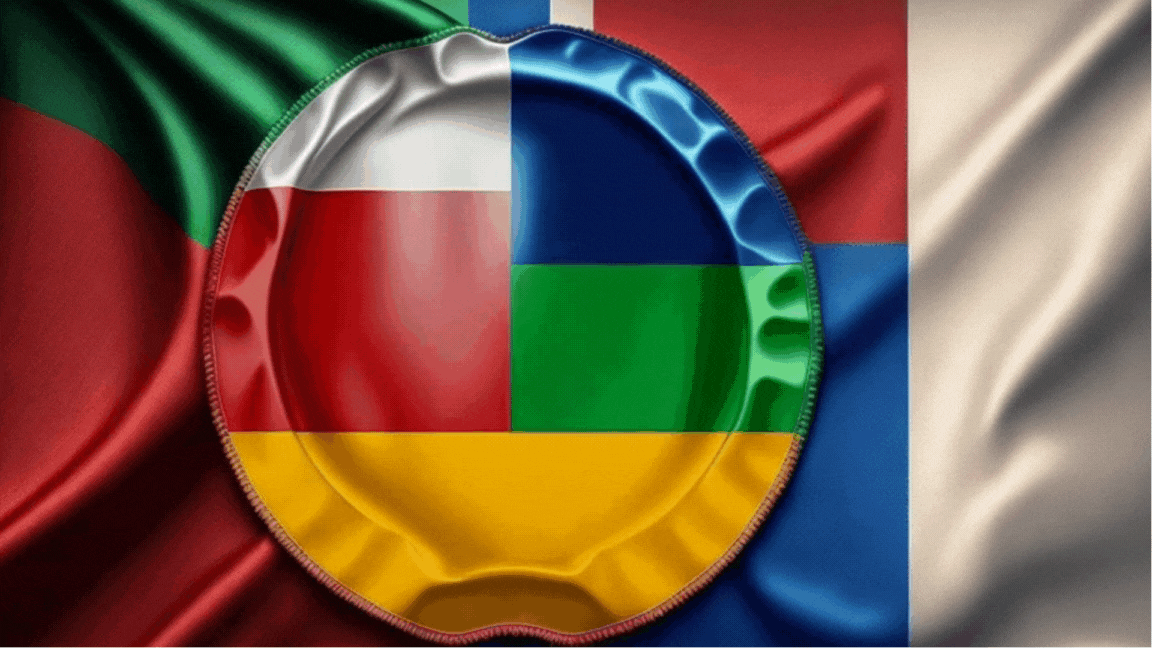The Latin American Report # 554

Nicaragua
A human rights watchdog organization denounced this Sunday the arrest in Nicaragua of five opponents to the government of Daniel Ortega and Rosario Murillo, who—following recent constitutional changes—now appear as co-presidents of the Central American nation. The detentions are part of an offensive launched by Ortega, in power since 2007, to "capture" and "prosecute" "conspirators." Although economically the country functions with relative normality—aided significantly by the absence of U.S. sanctions against the economy—, its democratic health remains thorny due to the repressive character attributed to the "Orange House" commanded by the Sandinista leader, especially since 2018, a year that marked a bloody watershed in political development.
With these recent imprisonments, there would be around 60 dissidents jailed, according to data from a body endorsed by the Inter-American Commission on Human Rights. Many political prisoners have been sent to third countries in recent months after negotiations with the Vatican and other international mediators. These people are usually stripped of their nationality, assets, and political rights. Recently, the murder in neighboring Costa Rica of a retired military officer and Ortega opponent—who had resided there since 2018—caused an uproar even outside the region.
Venezuela
This Sunday, municipal elections were held in Venezuela, a watered-down electoral process embodying frustration over the poor and disputed institutional performance during the July 28 elections last year. The opposition’s most powerful faction, centered around figures like María Corina Machado and the Spain-based ghost named Edmundo González, called for abstention as a form of protest—as in the National Assembly and gubernatorial elections from last May. However, opponents like Henrique Capriles, who twice ran for president against Chavismo, have challenged this strategy, advocating for opposition presence at the polls.
"Abstention cannot be the path for me. It’s useless; we’ve seen it before. Abstention is nothingness, and I prefer to express myself," Capriles stated this Sunday. The former governor of Miranda state, in fact, won a parliamentary seat in May. Accordingly, several opposition mayors bet on the electoral route and sought reelection.
A senior official of Venezuela’s grim electoral authority declared that incidents had been minimal in the elections, where 335 mayoral seats were contested. A political strategy that seems to have worked to some extent was to—once again—consult citizens on which community projects should receive public funds. This time, the focus was on youth-centered initiatives—for example, a "cultural ice cream shop," a "gaming zone," and the like—, a move that has led to greater involvement from younger voters, who are the ones who decide. Again, Chavismo can plays dirty and rough, but is not stupid (unlike the opposition leadership).
The man with the critical key
President Nicolás Maduro, ever the provocative showman, announced ten days of celebration with "major musical events", marking one year since his reasonably contested reelection. After voting yesterday, he launched poison darts at Washington. Addressing the possibility of better relations with the Republican White House, the head of Miraflores Palace stated the following: "[Facing] a bipolar policy, we must act as we do: with Bolivarian diplomacy of peace, serenity, nerves of steel, and by working for what we believe—because we don’t depend on anyone." The head of Foggy Bottom, meanwhile, also aimed U.S. diplomatic cannons at red Caracas, reaffirming that for the Trump administration, Maduro’s government is illegitimate. In any case, the veteran socialist gladiator holds the keys to Venezuelan prisons where, occasionally, some lost American ends up sleeping.
Maduro is NOT the President of Venezuela and his regime is NOT the legitimate government. Maduro is the head of the Cartel de Los Soles, a narco-terror organization which has taken possession of a country. And he is under indictment for pushing drugs into the United States.
— Secretary Marco Rubio (@SecRubio) July 27, 2025
Cuba
Reports have recently surfaced—so far just an idea—about creating a Silicon Valley-style tech hub on the Isle of Youth (named Isle of Pines until Castro’s Revolution). This hub would unite companies from BRICS and Eurasian Economic Union countries, offering digital products/services across Latin America and the Caribbean; the proposal is backed mainly by Russia, and was presented during a meeting in Moscow last week.
Thus, the project envisions hosting up to 13,000 professionals and 2,000 students, with multiple infrastructures—to be built from scratch—focused on production and resident needs. Look, it’s a risky bet given Cuba’s economic state, especially electricity generation, making renewable energy investment a primary requirement. But my greatest concern is whether this initiative could become a sound engine for Cuba’s ailing and battered economy, creating spillover effects that transfer benefits even to the most vulnerable. If this isn’t the ultimate goal, it won’t serve the country in these dire times.
